The pigs are back! 6 wessex saddleback piglets, about 8 weeks old, are the new pig tractor team of Milkwood Farm. Welcome little ones.
Back is not of course the correct term as the previous 2 pigs have now been turned into everything from terrine to bacon to roast pork to feed the oscillating numbers of crew, wwoofers and students who pass through Milkwood Farm, but you get my drift. Which brings me to Milkwood Farm’s new animal enterprise manager, Floyd.
Floyd came to Milkwood Farm first as an intern in 2010, and has returned since then for stints as a teacher, in between his various global permaculture and aquaponics designer/practitioner appointments. We’re now very happy to welcome Floyd and his wife Gigi to Milkwood Farm full time.
Our long-term plan with Milkwood Farm is to nurture and support multiple complimentary enterprises which all work together and have various synergies for everyone involved.
The first of these enterprises is the market garden, which is run by Michael Hewins, and which supplies Milkwood Permaculture with fresh organic veggies for crew and student catering, with surplus being sold locally.
The second of these enterprises is… animals. Of many types. Exactly what/how/when is up to Floyd, in consultation with the rest of the Milkwood crew. At first, this aspect of Milkwood Farm will be a bunch of micro-enterprises all working together.
The first set of goals of the animal enterprises of Milkwood Farm are:
- 100% clean, home-grown ‘beyond organic’ meat supply for crew and student catering
- 100% clean, home-grown egg supply (chicken + duck for starters) for crew and student catering
- Enhanced nutrient cycling for the forest garden and market garden systems
- Regenerating the dehesa and pasture sections of Milkwood Farm with mob-stocked grazing
- Dairy products (ok that’s just me sneaking that in there in an attempt to manifest home-grown cheese and raw milk – this might not be viable given our land – worth a try)
Beyond these immediate needs of our system, we’re looking to develop animal systems that result in organic products that can be sold to the wider community. But we’ll need to take that aspect a little slower, as our budgets are small and we want to get the systems working well before attempting to expand.
So. First up, pigs. Floyd will be ‘tractoring’ these 6 pigs across the lower forest garden planting site before taking them on to our patches of forest, where they’ll tractor the understorey patch by patch, hemmed in with electric fencing.
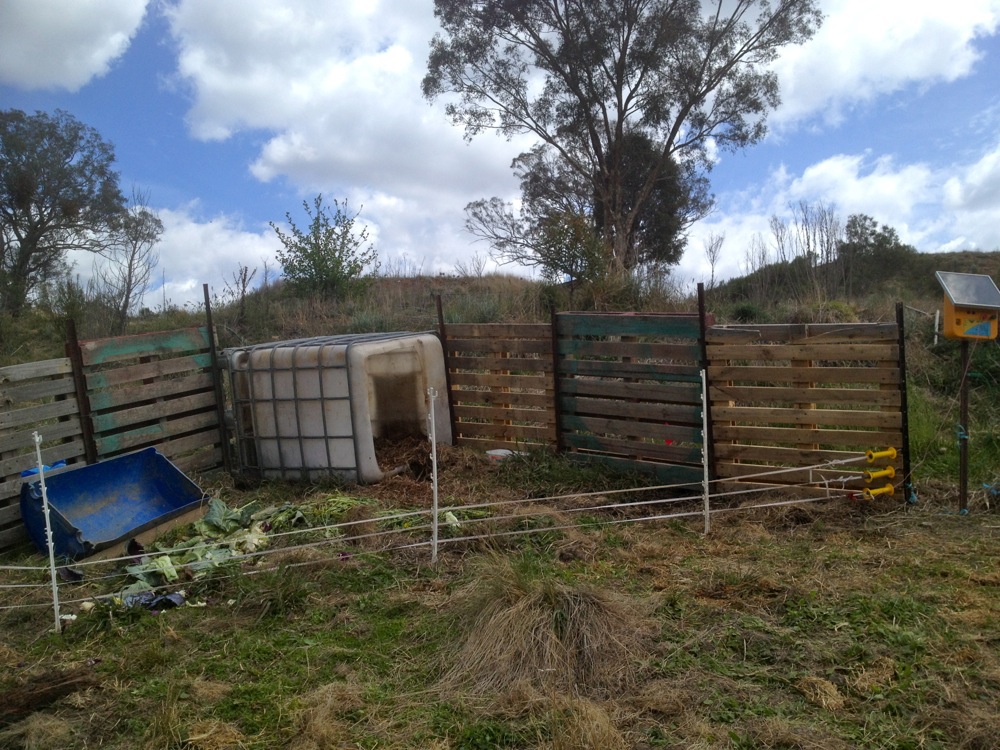
pastured piglet training ground: following Joel Salatin’s advice, we’re confining their area for the first 4 days or so until they respect the nature of the electric fence. Once that lesson is learned, we’ll be increasing the boundary of the fence, and commence moving them patch by patch.
We’re taking inspiration for these systems from discussions with Joel Salatin about the techniques he uses at Polyface Farm and also from some great farmers in southern Australia we’ve have the pleasure of meeting through our education programs.
We’ll also be keeping up on the data (inputs, outputs, side effects) of these animal systems, for everyone’s benefit. I am sure our figures won’t come in as the most strictly economical way to raise pastured pork (a least in our first year), but we’ll do our best and share the results as we go.
Viva la Floyd, Gigi, complimentary micro-enterprises and pigs. Here’s to new models for creating sustainable community + education.
In February we’ll be welcoming Joel Salatin back to NSW to do a series of masterclasses on Polyface Farm’s techniques, including a pastured beef and park masterclass, which will be a day of in-depth discussion and knowledge on raising sustainable beef and pigs. You should come.

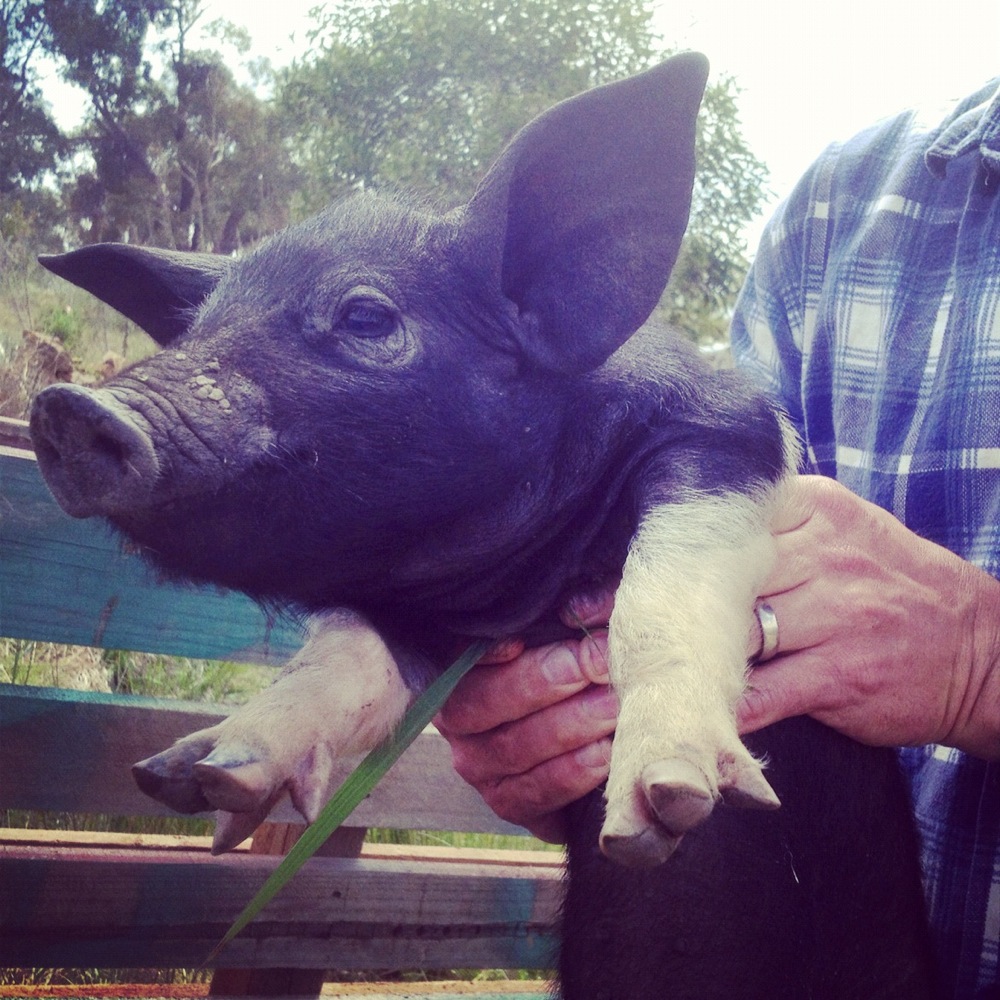
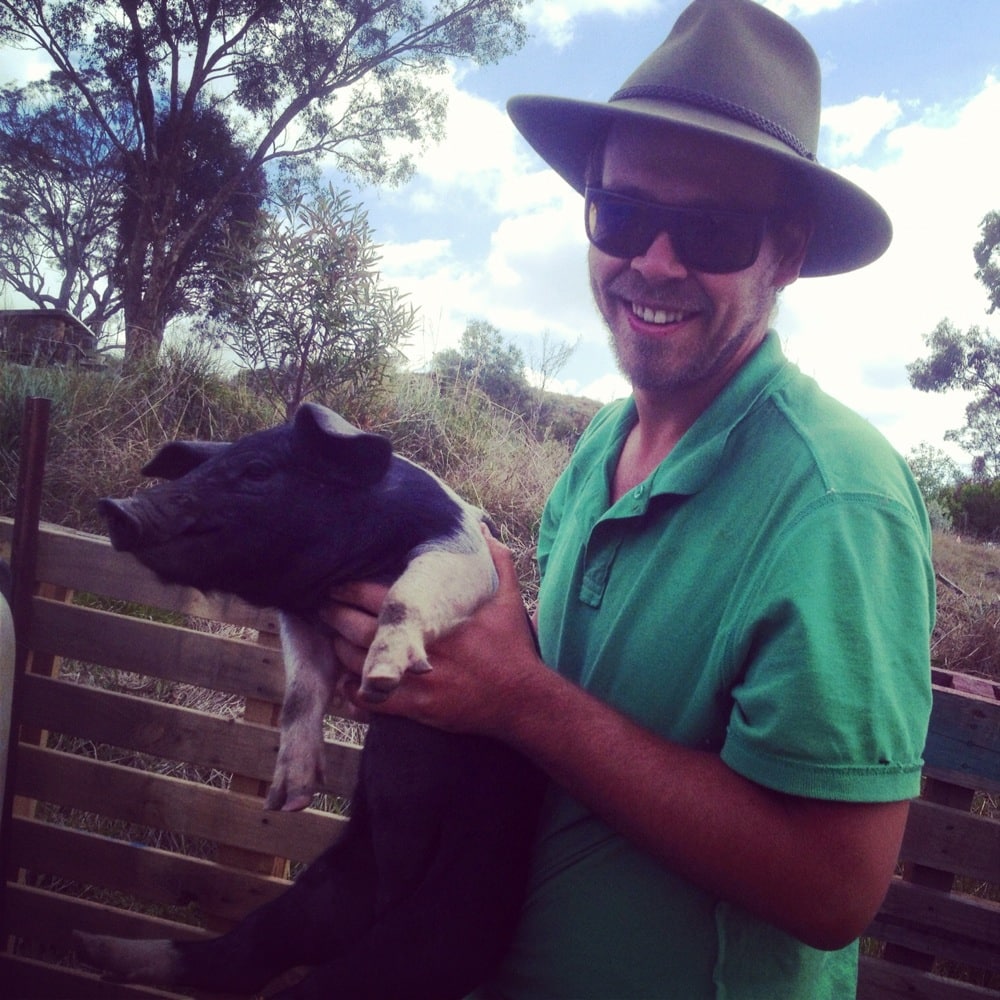
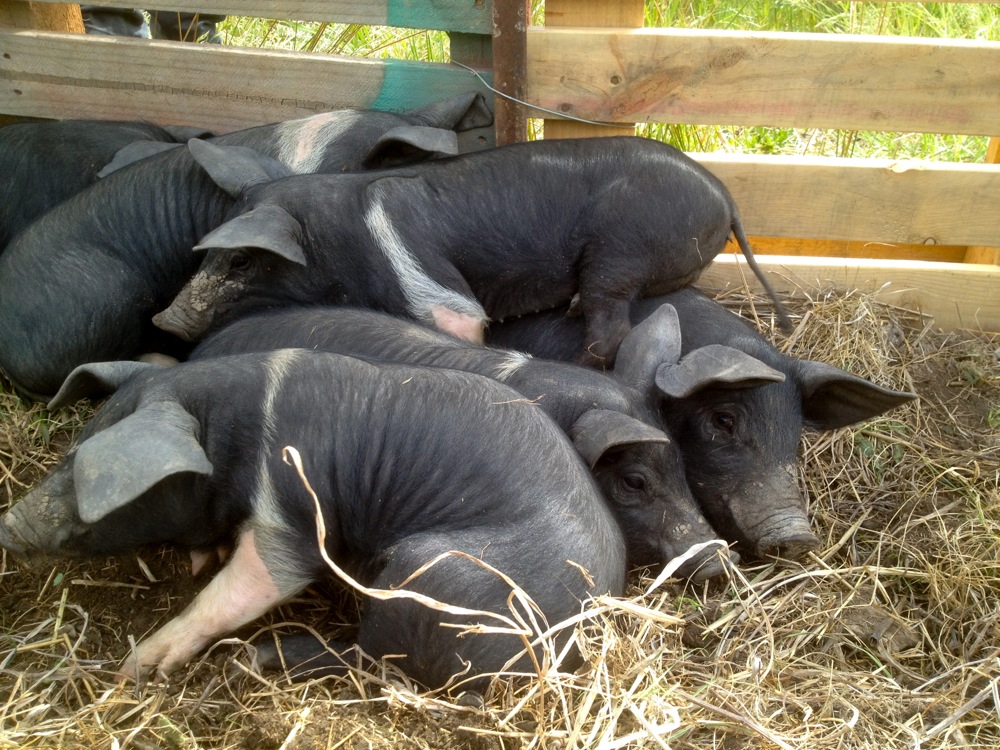
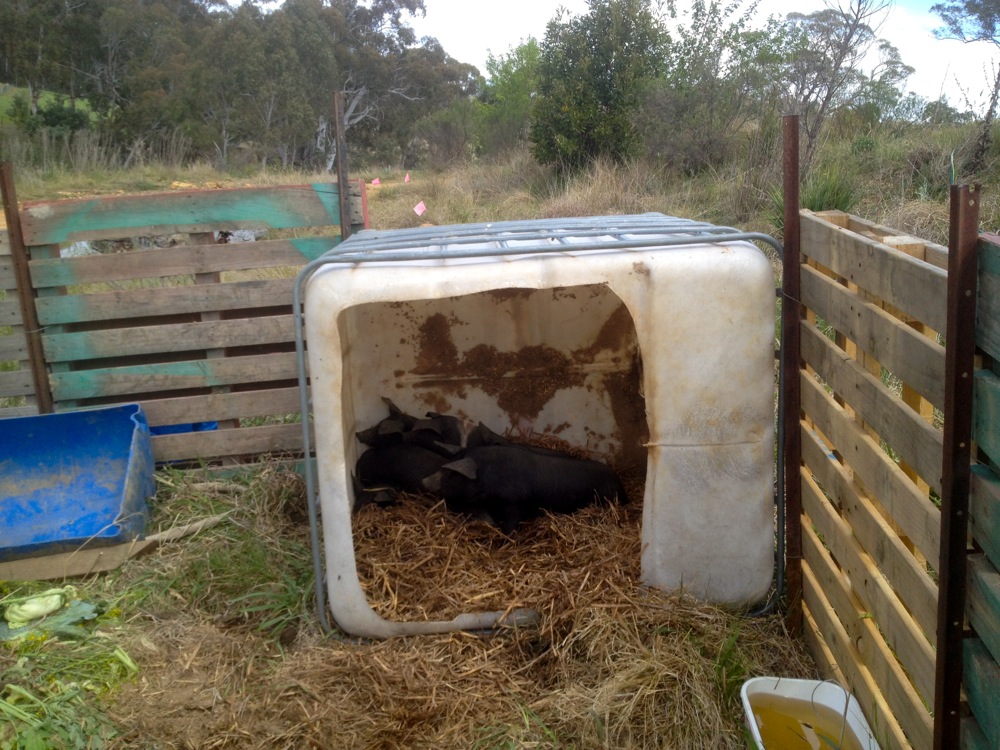
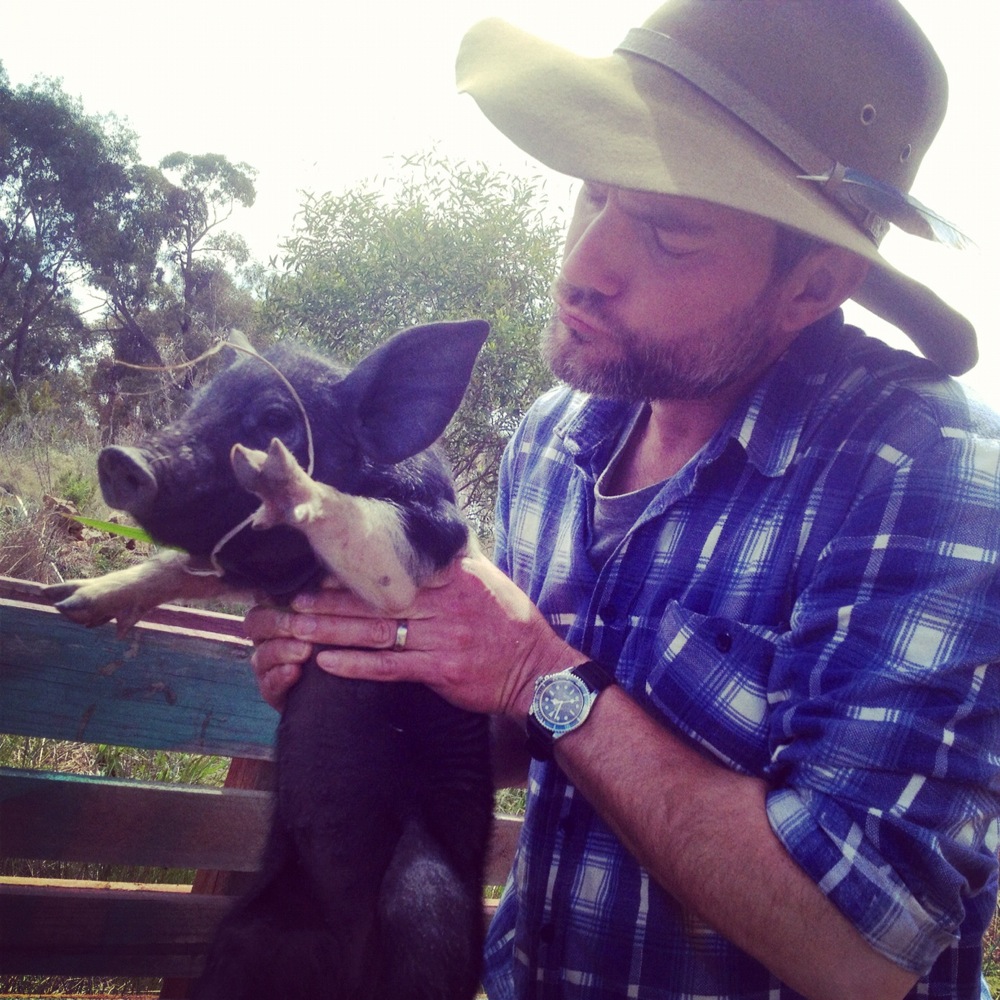
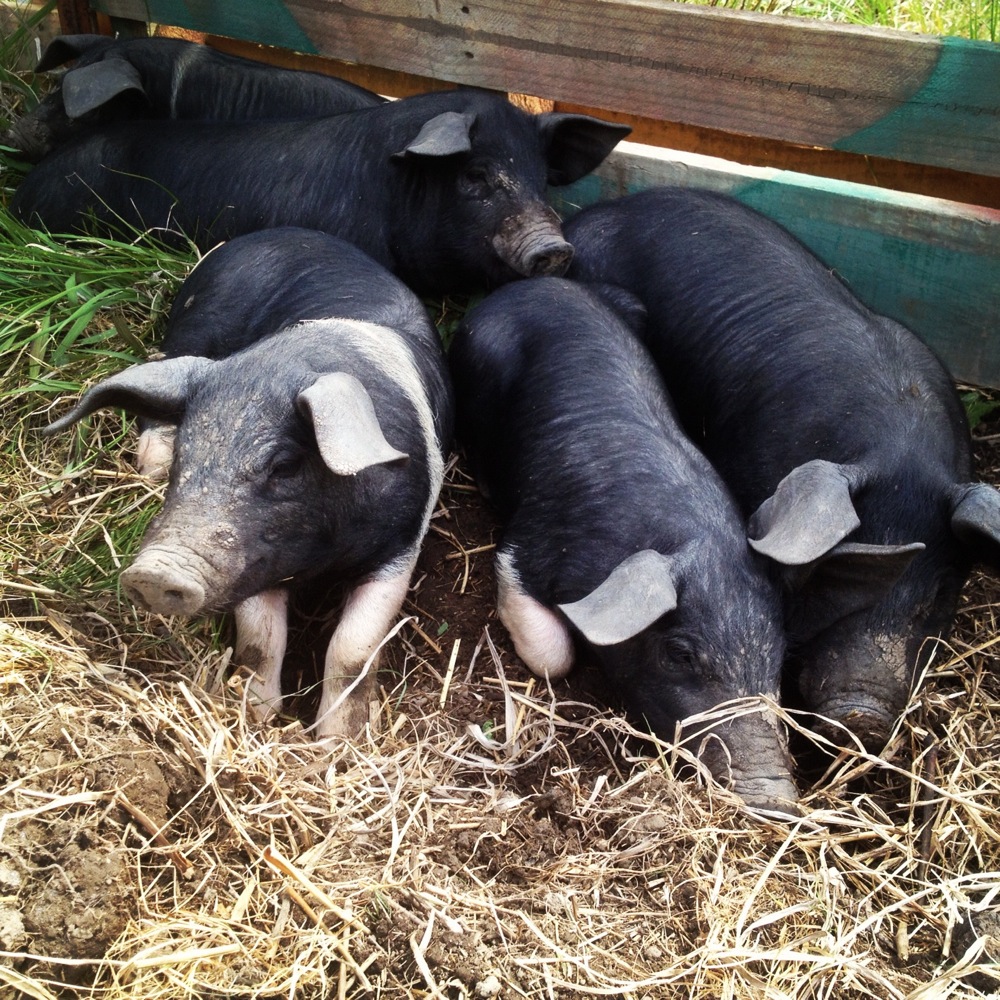
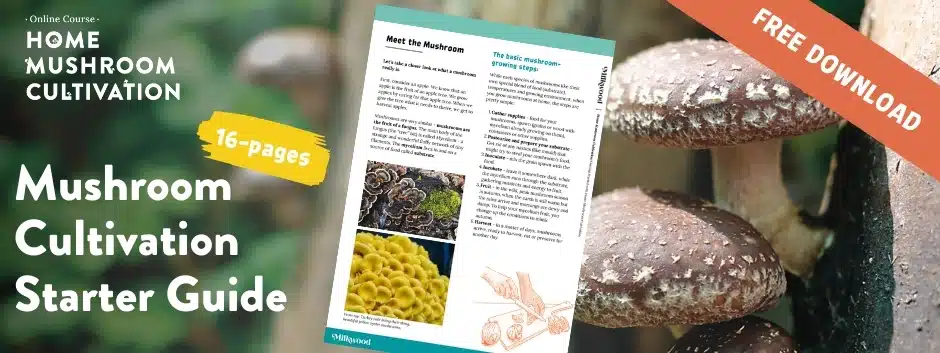
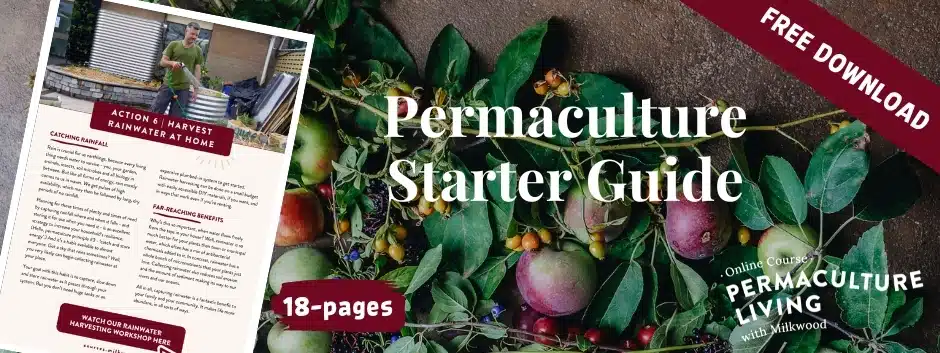
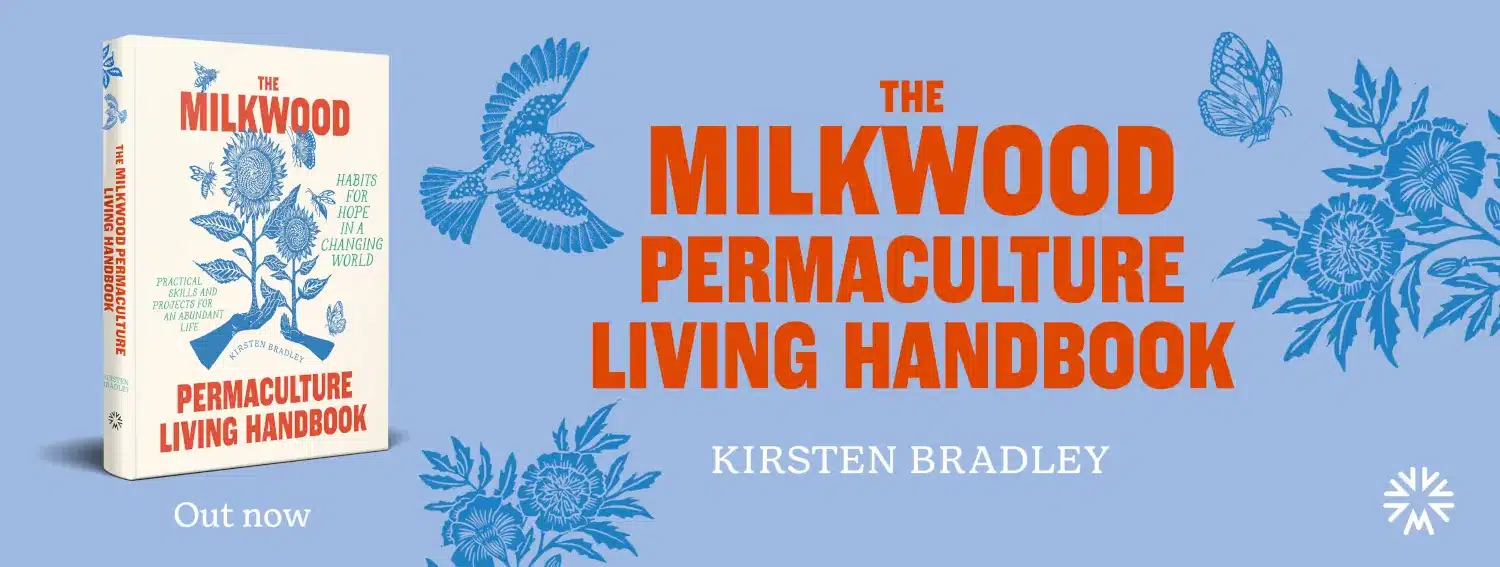

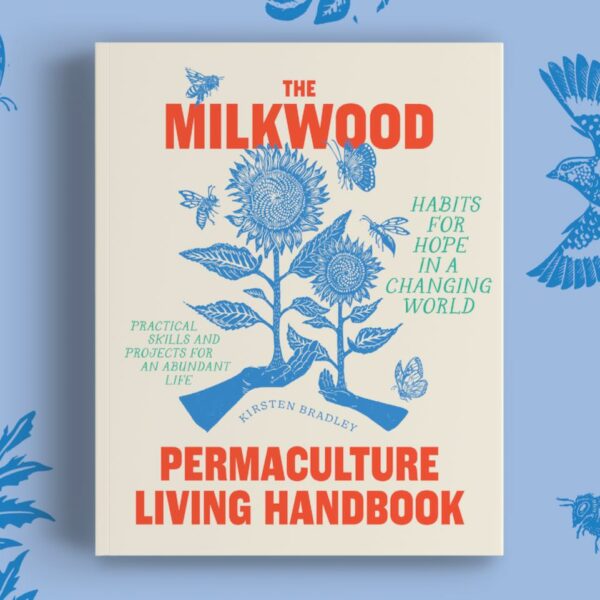
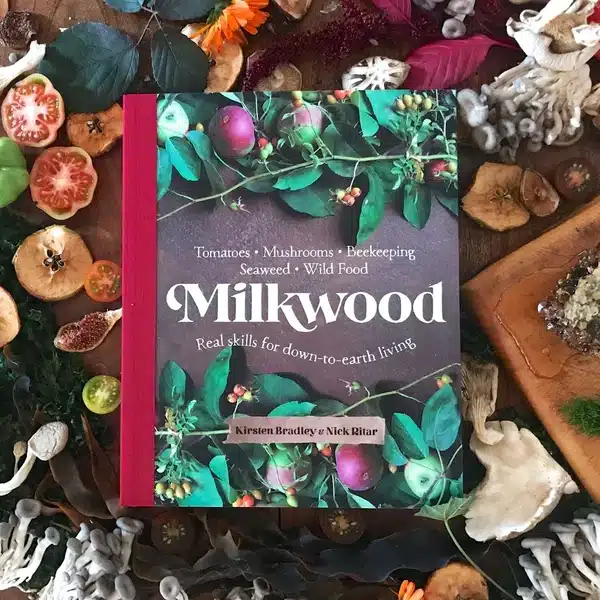






So fun to read about your farm from so far away. Family farmers are under siege in the U.S. by the government to put them out of business (you may have heard that Monsanto and Dow calls the shots in the U.S.), especially ones producing raw milk for human consumption. It’s terrible, and must be a relief to raise whatever kind of pigs that work for your farm. See one of my recent blog posts: http://latebloomershow.com/2012/10/14/hogwash-in-michigan/
Thanks for all you do to make the world a more livable place!
Joel Salatin is a hero of monumental proportion!
Heh heh a couple of pigs and a constable… very cute! I have my fingers crossed that pigs will tractor out the Romulea at a proposed market garden site. They sure are quick to flatten (or rather mound) an area. Looking forward to hearing how yours get on.
Can’t wait to hear how it all goes. Lots of other bloggers seem to have trouble containing pigs. From a practical perspective – can you keep us updated on how the electric fencing goes with pigs?
will do – they’re in their first double-strand electric paddock already and they’re going well, very respectful of the fence so far 🙂
Kirsten, I’m working on the micro-dairy side of things LOL! once the pastures have been improved a bit by Floyds animals systems so quality feed does not equal huge off farm inputs, it could happen. Don’t ever give up hope! if only your could somehow turn Milkwood into a Vermont kind of landscape……..
Come on back already Sophie! We’ll try and get the pastures up to scratch by the time you and your ladiez get here 😉
Perhaps goat milk is a more viable option than cow milk at Milkwood?
Yep definitely agree that goats are more appropriate, but it’s hard to not wish for a jersey 🙂
Bring on the pigs, I saw firsthand a pig farm in Sweden full of hundreds of very cool pigs in huge paddocks with just two strands of electric fence keeping them from the road and the rest of the world. Mixed with wild boar, these pigs were GREAT and very tasty. so excited guys xxxxxx
Great reading, looking forward to our own pigs next year
It is interesting that when pig-tractoring is planned it is regenerative, but when it is feral pig rooting, it is generally taken as an environmental impact and contributor to erosion. I’ve been looking at all the feral pig ‘damage’ on my block and trying to actually establish whether it is good, bad or just a part of the new ecology…
Forager – just like a ‘weed’ is simply a plant not growing where you’d like it to, pig rooting where you don’t want it is all bad – but turning over soil and eradictating plants where you WANT them to is all good…feral pig rooting is usually in the ‘wrong’ place, like in the middle of a natural ecosystem that is not evolved to cope with the extensive damage to the soil crust
Hi Kirsten, gorgious piggies! Look into Aussie Reds, a dairy breed that is quite hardy and which should do well in your climate. Cheers, Pierre
Why would you think it necessary to kill these beautiful and intelligent animals for bacon when there are any number of other sources of protein to feed the crew and students? This is where I draw the line with permaculture. It just hasn’t advanced in the area of ethics.
Hey Des, well have to agree to disagree in ethics here I think! Interesting that I heard a heritage pig breeder, who is responsible for keeping multiple breeds from extinction, say that the only way to preserve generic diversity of many breeds is to keep eating them, as there is no other way to justify breeding sufficient stock to ensure resilience of the breed… Interesting how he world works!